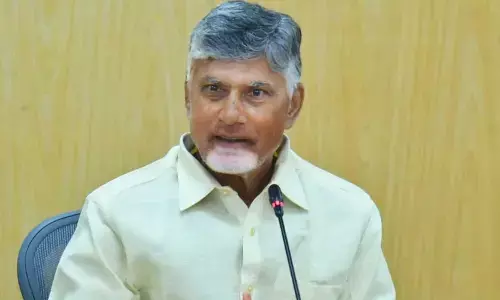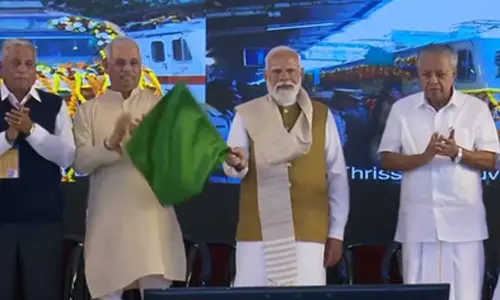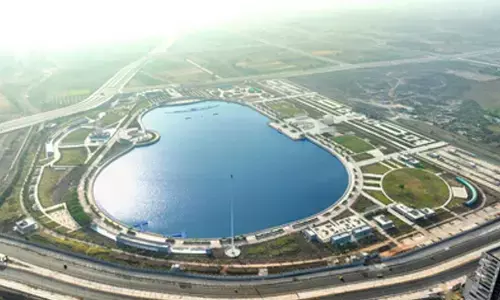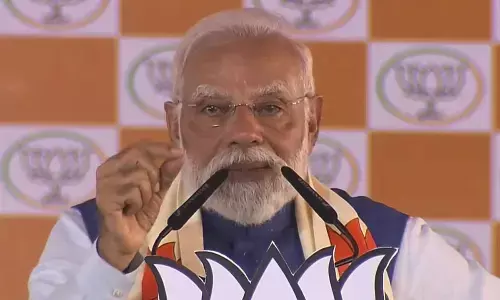World endorses Modi's vision for peace
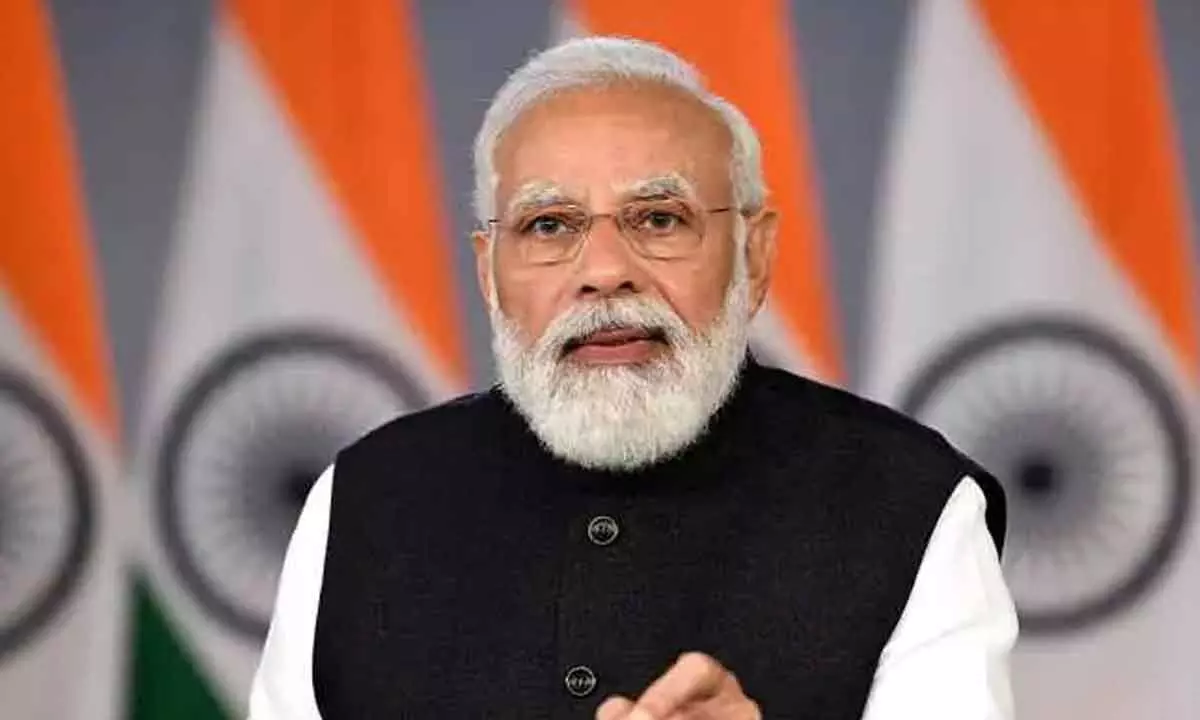
Narendra Modi
At the core of India's foreign policy under Prime Minister Narendra Modi is the mandate that bilateral relations with all would be based on mutual security and economic interests
At the core of India's foreign policy under Prime Minister Narendra Modi is the mandate that bilateral relations with all would be based on mutual security and economic interests, and that this principle would also be extended to multi-lateral cooperation wherever required – provided that all such pacts would be in consonance with the cause of world peace.
Sequentially, security will always come before economic interest but what Modi's approach to international relations has achieved is to establish that economic development inherently served the security agenda as well.
The good news is that the merit of India's policy is already showing up on various fronts – India-US relations marking the natural friendship between the two largest democracies of the world, India's crucial stand of positive non-alignment on Ukraine-Russia military confrontation based on an understanding of the national concerns on both sides, and the prominent role of Modi at the recent Quad summit in Tokyo where the concept of security-development interface – rather than security and economic growth as separate dimensions – became centre-stage at the global level for the first time.
Prime Minister Modi always projected Quad as an instrument for promoting 'rules-based order' in the Indo-Pacific and as a forum for enhancing mutual cooperation among the countries of the region – even as India joined this powerful group of democratic nations of the world to oppose the aggressive designs of China in that maritime zone.
From India's point of view, this was also like establishing an early barrier to any hostile activity of the Chinese in the Indian Ocean. India, however, wanted the security cooperation under Quad to be reinforced by a more effective economic participation among the countries of the region to counter the Chinese attempt to dominate them.
The signing of the agreement on May 24 in Tokyo in the presence of US President Joe Biden for launching the Indo Pacific Economic Framework (IPEF) involving nine other countries of the region besides the Quad members, is an affirmation of the Indian approach to the pathway of economic friendships for global peace and development and an answer of the democratic world to the dictatorships of the times.
The unusually strong denunciation by China of this US-led move for strengthening economic cooperation in the Indo- Pacific is an admission by the former that this development would effectively stall the Chinese strategy of using the economic route to achieving a political sway here.
Prime Minister Modi underscored the positive character of the all-embracing Indian strategy when he emphasised that 'despite the adverse situation of Covid-19, we have increased our coordination for vaccine delivery, climate action, supply chain resilience, disaster response, economic cooperation and other areas'. This according to him 'had helped to establish peace, prosperity and stability in the Indo-Pacific'.
It is remarkable that the Tokyo summit did not allow the Ukraine-Russia military conflict to cast its shadow on Quad's primary mission of countering an expansionist China in the Indo- Pacific. The joint statement of the leaders, issued after the summit on May 24, reiterated their steadfast resolve to work for a free and open Indo-Pacific that was inclusive and resilient but it also enlarged the forum's ambit by declaring that 'Quad is a force for good committed to bringing tangible benefits for the region' and keeping the latter free from 'all forms of military, economic and political coercion'.
Noting that the participants were 'responding in their own ways' to the conflict in Ukraine and the ongoing humanitarian crisis there, the statement revealed that the impact of these events on Indo- Pacific was assessed and that the leaders were all in favour of giving priority to maintenance of peace and stability in the region.
The Tokyo summit expanded the scope of economic cooperation in the region by defining the future strategy on issues ranging from economic recovery in individual countries to the collaboration on development of critical technologies. The leaders even gave thought to the ways and means of strengthening the capacities of the countries in the region to cope with the debt issue and appreciated the meetings held by development finance institutions and agencies of the Quad partners to better connect the Indo-Pacific.
The summit planned to work for deepening collaboration in identified areas such as regional and digital connectivity, clean energy and climate including disaster resilience in energy related facilities, in the interest of sustainable and inclusive growth in the region. The Quad partners decided to coordinate capacity building programmes in the Indo-Pacific under the Quad Cybersecurity Partnership. They pledged to focus on harnessing emerging technologies for the prosperity and security of the region. Cooperation on 5G supplier diversification was highlighted and joint efforts to leverage complementary strengths to raise a competitive market for semiconductors and other critical technologies were stressed upon. In short, the Quad summit has taken the joint endeavour in economic and security spheres of Indo- Pacific to a new level, in line with India's strategic thinking. The summit declaration echoed the Indian stand that at the centre of international order is the international law, including the UN Charter, that respect for sovereignty and territorial integrity of all states has to be maintained and that all countries must seek peaceful resolution of disputes in accordance with international law.
The stamp of India was clearly visible in the unequivocal castigation of terrorism and violent extremism in all its forms and manifestations, denunciation of the use of terrorist proxies and a categorical condemnation of the 26/11 terrorist attacks in Mumbai and the Pathankot airbase attack in 2016.
The statement demanded that the Afghan territory must never be used again to threaten or attack any country or to shelter and train terrorists. A total India-US convergence on terrorism was in evidence in Tokyo.
Quad leaders also recorded their appreciation of the pioneering role of India in production and distribution of Covid vaccine under the Quad Vaccination Initiative.
The importance of economic development besides security cooperation was highlighted through the specific mention of 'shared effort to build infrastructure that was essential for driving productivity and prosperity in the Indo-Pacific region'.
Quad is apparently adopting a strategy to counter the Chinese game plan of building its hold on the region through economic pacts.
The Tokyo summit became a new landmark in Indo-US relations. President Biden seemed to have put the focus back on China amid the Ukraine-Russia conflict when he emphasised that 'Quad is not just a passing fad but it means business'.
He attacked Russia for its invasion of Ukraine - saying it is trying to extinguish a culture - and made out that Ukraine was not just a European issue but a global one but without making any India specific comment, urged the group to make a greater effort 'to stop Vladimir Putin's aggression'.
Biden, in fact, was extremely enthusiastic about meeting Prime Minister Modi 'again in person' - he remarked that Indo-US friendship had entered a new chapter and that Indo-US ties will be among 'the closest on the earth'.
Modi described India's relationship with the US as 'truly a partnership of trust' and said he is confident that this friendship will continue to be a force promoting global peace and stability.
President Biden profusely praised India's democratic functioning and bracketed India with the US in providing leadership to the democratic world against the menace of dictatorships and autocracies.
Prime Minister Modi's handling of international relations is working exceptionally well for India. It will add to the standing and prestige of India if it offers the services of interlocutors in mediating for peaceful negotiations between Ukraine and Russia under the auspices of the UN.
(The writer is a former Director of Intelligence Bureau. The views expressed are personal)









